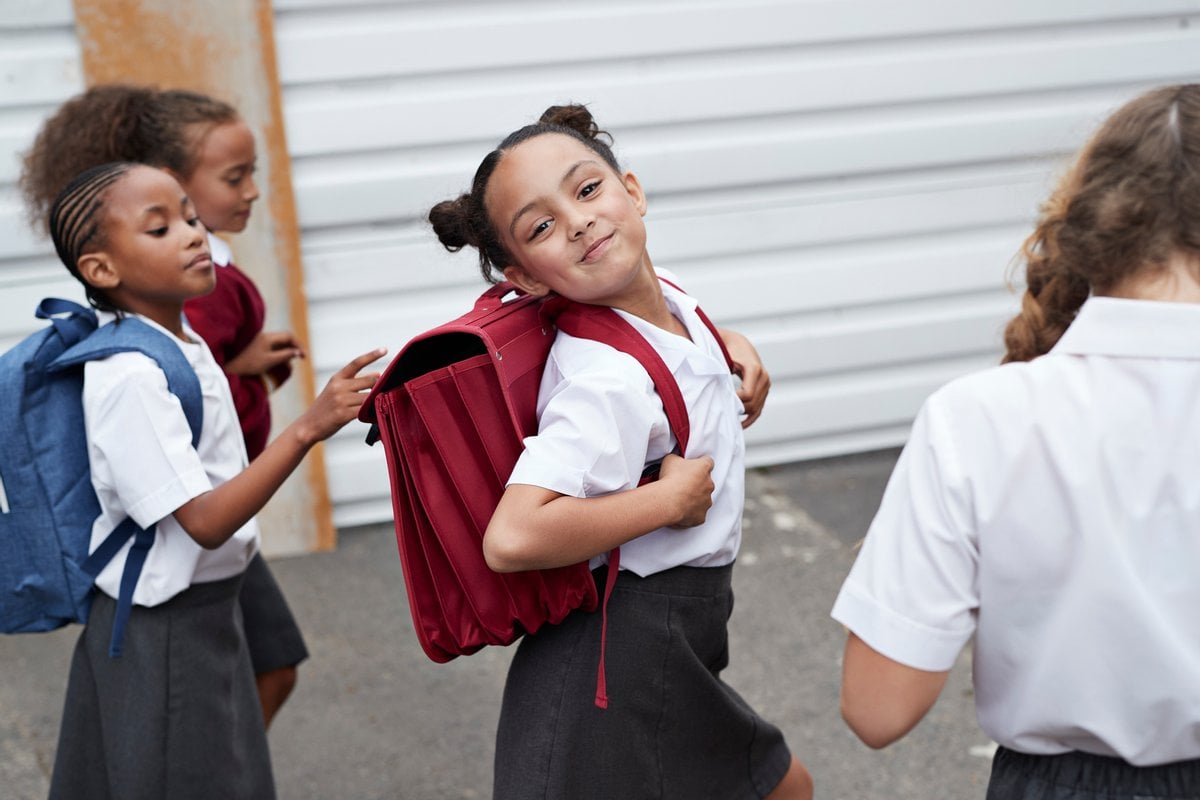
There is no better time to talk about school readiness than now. As January comes to an end, there are many, many excited and nervous children (and parents) about to embark on the journey that is school.
But, how do you know if your child is really “school ready”?
“School readiness” is a loaded term and one that is used far too often. I am not sure where the term originated from or out of what context. However, much like other buzz words, “school readiness” has entered mainstream language and has taken on a life of its own.
Watch: The five types of parents at school pickup. Post continues below.
It's been plastered on products and programs to boost marketability with no real explanation as to how and why they support school readiness. And this comes at the expense of well-intentioned parents, and ultimately their children.
This results in a cohort of children arriving at school with particular skills, knowledge and understanding, which are not necessarily conducive to smooth transition.
So, what is helpful for children to know and be able to do before they start school? I use the word ‘helpful’ very intentionally here, because teachers will always meet their students where they are at in their learning and development and strategies can be put in place to support children to develop each of the following areas.


